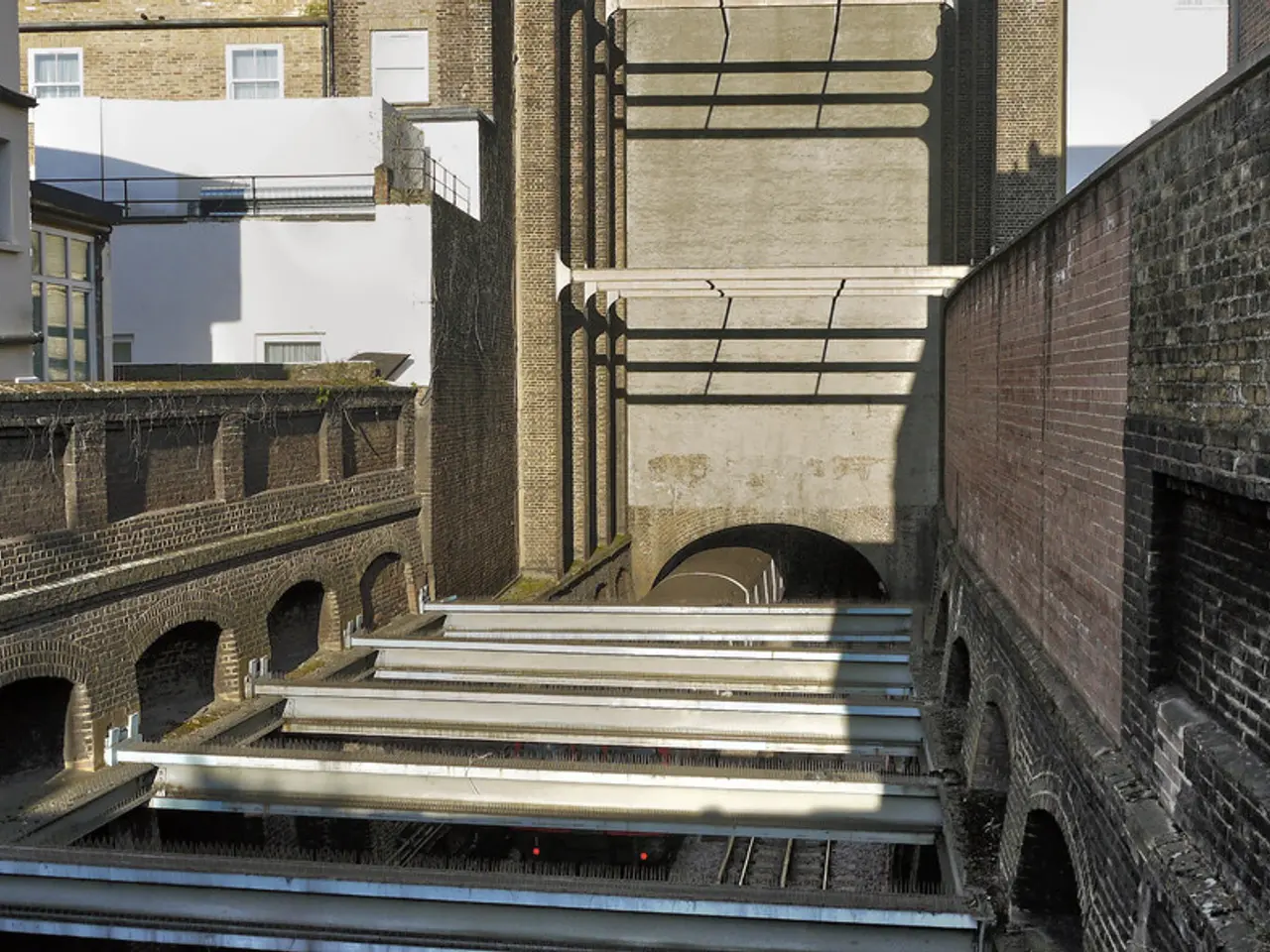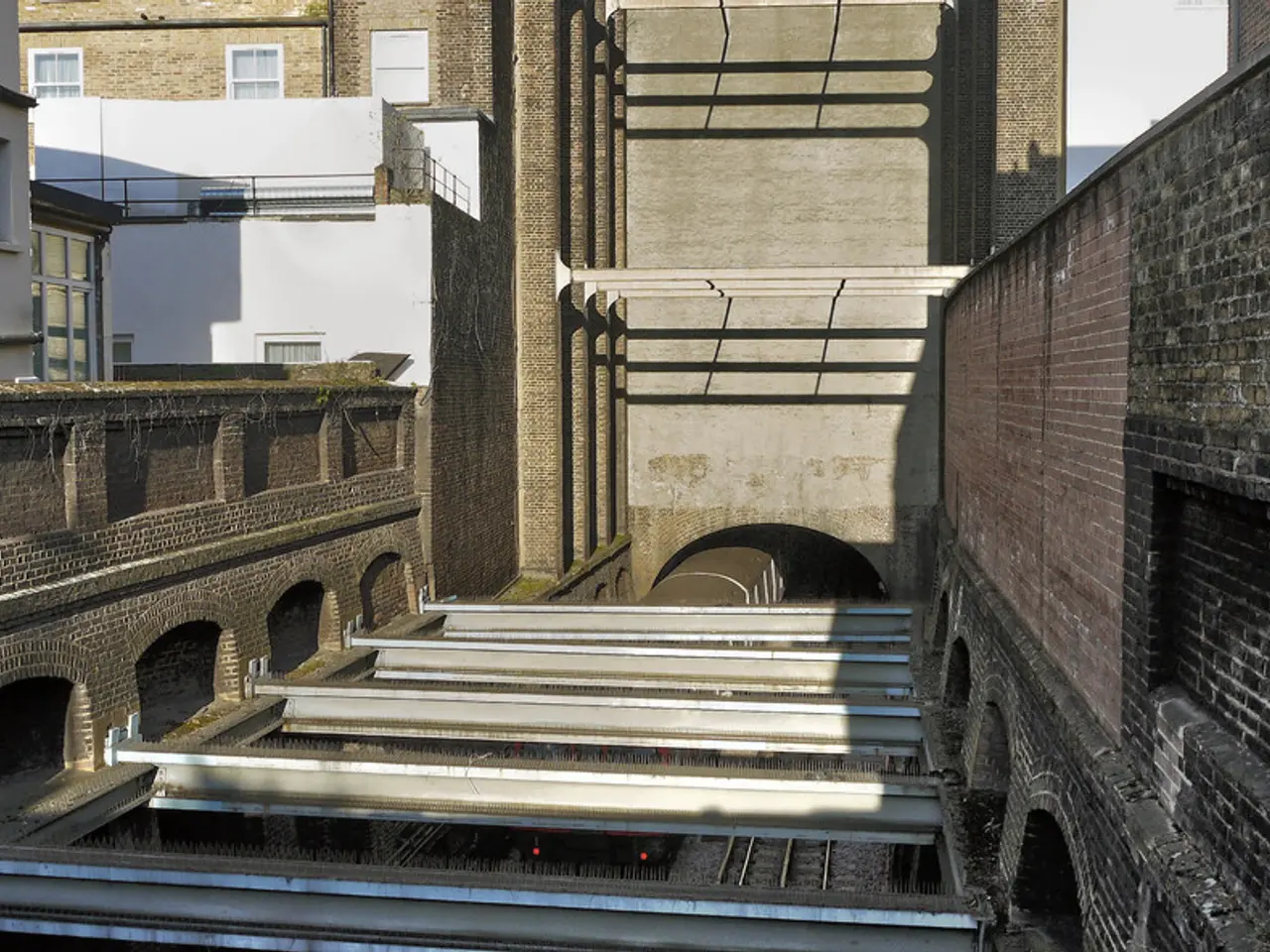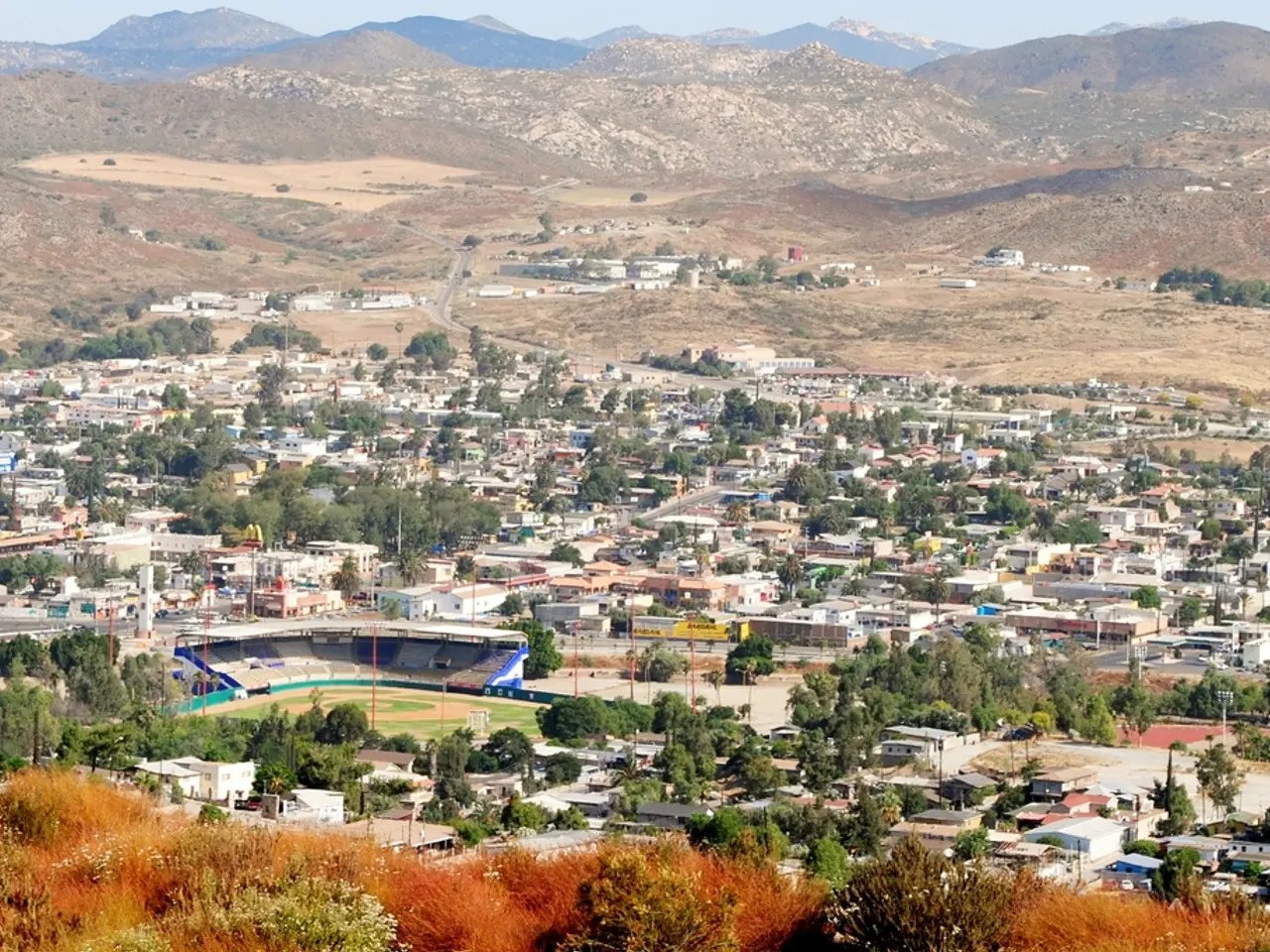Russia's President, Putin, has issued a prohibition to permit the nation's economy from deteriorating or standing still.
Rethinkin' Russia's Recession Risks: A 2025 Update
In the heart of 2025, Russia is grappling with a host of economic hurdles. The pressure is mounting as the nation struggles to keep its economic engine running amidst inflation, sky-high interest rates, and a shrinking civilian output.
Russian Economic Rollercoaster
After two years of growth that outpaced the global average, Russia's economy took a turn for the worse. GDP growth slowed to a meager 1.4% by the end of March, marking the first quarter-on-quarter contraction since 2022. Sounding the alarm, President Vladimir Putin declared that the nation must steer clear of a fall or stagnation.
Experts' Prognosis and Putin's Counterpoint
Before the annual St. Petersburg International Economic Forum (SPIEF) in 2025, Economic Development Minister Maxim Reshetnikov issued a stark warning—Russia was edging dangerously close to an economic downturn. Central Bank Governor Elvira Nabiullina was equally pessimistic, contending that the resources driving economic growth under the current conditions were exhausting—labor force, unused factory capacities, and National Wealth Fund liquid assets.
However, Putin remained optimistic, reassuring the SPIEF audience that he wasn't sold on the doomsday predictions. He emphasized the need to transition the economy to a trajectory of balanced growth, aiming for moderate inflation and low unemployment.
Economic Threats and Sanctions
Russia faces the risk of economic "overcooling," which refers to excessive economic slowdown due to prolonged high interest rates. The Central Bank of Russia recently lowered its key interest rate from 21% to 20%, but high rates remain a major hurdle for growth. Inflation remains stubbornly high at around 9.9%.
Ongoing sanctions, inflation, and labor shortages are placing immense strain on Russia's finite resources, making it challenging for the nation to sustain both military operations and its struggling economy.
Putin's Perspective on Sanctions
As new sanctions loom from the U.S. and the EU, which are expected to target the "shadow" tanker fleet, Putin is confident that only Russia's enemies will suffer as a result. He warned that attempts to harm Russia would also lead to problems for those who attempted to "mess with us."
Strategies to Navigate Economic Strife
Putin's announced strategies to navigate these economic challenges involve maintaining controlled inflation and interest rates, war economy prioritization, structural adjustments, and import substitution and diversification.
By focusing on these strategies, Russia hopes to manage the delicate balance between sustaining its wartime spending and civilian economic health, all while coping with external pressures such as sanctions and energy market fluctuations.
- The economic challenges facing Russia in 2025, including inflation, high interest rates, and a slowing GDP growth, are closely linked to its business sector, politics, and general news, as the nation navigates sanctions and strives to balance military operations with economic growth.
- As Russia grapples with its current economic woes, the future of its finance sector could rely heavily on Putin's strategies, such as controlled inflation and interest rates, war economy prioritization, structural adjustments, and import substitution and diversification, to ensure balanced growth and sustain both military and civilian needs.




